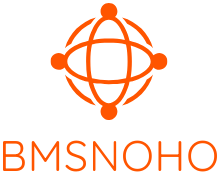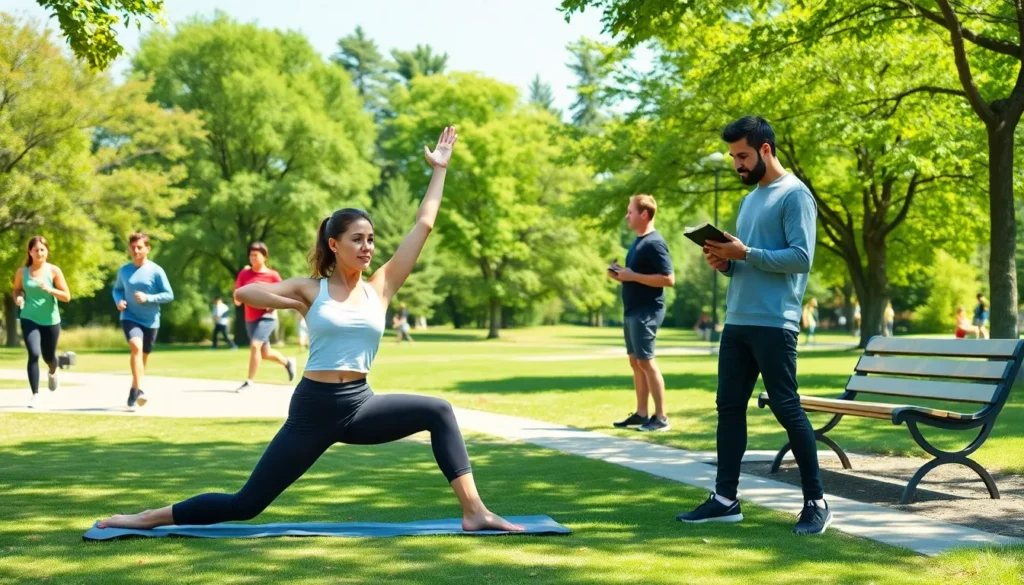Table of Contents
ToggleIn a world where routines can feel as rigid as a gym coach barking orders, habit flexibility offers a refreshing twist. Imagine being able to adapt your daily habits like a seasoned yoga instructor bending into a pose—without the risk of pulling a muscle. It’s not just about sticking to a schedule; it’s about learning to dance with life’s unpredictability while still getting things done.
Habit flexibility isn’t just a buzzword; it’s a game changer. It empowers individuals to pivot when plans go awry, ensuring they stay productive without the stress of perfectionism. Whether it’s swapping a morning jog for an afternoon stroll or trading a book for a podcast, embracing this concept can turn mundane routines into enjoyable adventures. So why not dive into the art of habit flexibility and discover how it can transform daily life into a more dynamic and fulfilling experience?
Understanding Habit Flexibility
Habit flexibility facilitates adaptation in daily routines, allowing individuals to respond effectively to life’s unpredictable nature. Embracing this flexibility fosters a balanced and enjoyable lifestyle.
Definition of Habit Flexibility
Habit flexibility refers to the ability to adjust and modify habits in response to changing circumstances. This concept encompasses the willingness to alter activities, timing, or methods when situations arise. Adapting one’s habits helps in maintaining productivity without the stress of rigid structures. Flexibility encourages individuals to pursue their goals without the constraints of perfectionism. It promotes a mindset that prioritizes progress over strict adherence to a plan.
Importance of Habit Flexibility
Habit flexibility holds significant value in modern life. It enables individuals to navigate unexpected challenges while maintaining focus on their objectives. When facing disruptions, flexible habits often lead to better emotional well-being. Adopting this approach fosters resilience, allowing for recovery from setbacks. Additionally, flexible routines enhance creativity by freeing individuals from conventional patterns. Embracing change in habits contributes to overall satisfaction and fulfillment, making life more manageable and enjoyable.
The Science Behind Habit Flexibility

Habit flexibility involves intricate cognitive and neural processes that support one’s ability to adapt daily routines. Understanding these aspects reveals the depth of habit flexibility’s impact on individual resilience.
Cognitive Processes Involved
Cognitive flexibility plays a crucial role in habit adaptability. This process enables individuals to shift their thoughts and actions based on new information or changing circumstances. Decision-making also becomes more effective as one assesses multiple solutions to problems, allowing for better responses in varying situations. Enhanced problem-solving skills further contribute to habit flexibility, as individuals can devise strategies that align with their goals even when facing obstacles. Self-regulation assists in prioritizing adaptable habits, fostering a focus on progress rather than perfection. Together, these cognitive components provide a robust foundation for maintaining productivity amidst life’s unpredictability.
Neural Mechanisms
Neuroscience identifies several neural mechanisms supporting habit flexibility. The prefrontal cortex significantly contributes to adaptive behaviors through planning and decision-making. Brain regions like the anterior cingulate cortex help monitor conflicts between current habits and emerging demands, facilitating necessary adjustments. Dopamine pathways also play a vital role, as they reinforce behaviors that lead to positive outcomes and motivate individuals to engage in flexible habits. Together, these mechanisms enhance emotional resilience, allowing individuals to manage stress and maintain focus on their objectives. Understanding these neural interactions underscores the importance of adaptability in navigating everyday challenges.
Benefits of Developing Habit Flexibility
Habit flexibility offers significant advantages for individuals navigating their daily lives. This adaptability plays a crucial role in addressing unanticipated changes.
Improved Adaptability
Improved adaptability stands out as a major benefit of developing habit flexibility. Individuals who embrace this concept adjust their routines seamlessly when unexpected circumstances arise. They shift activities without losing momentum, which enhances productivity. By maintaining focus on goals, they can pivot effectively in response to new information. This shift in mindset fosters a sense of control over one’s environment. Embracing habit flexibility reduces stress associated with rigid routines. The ability to modify habits leads to richer experiences and a greater sense of satisfaction in daily life.
Enhanced Mental Health
Enhanced mental health represents another key benefit of habit flexibility. Individuals practicing this flexibility experience lower levels of anxiety and stress. Adjusting habits allows for a more balanced approach to daily tasks. Those with flexible routines often cultivate a positive relationship with themselves, leading to improved self-esteem. They develop resilience, bouncing back from setbacks more rapidly. Regularly modifying habits encourages creativity, which contributes to emotional well-being. Greater satisfaction in life emerges from the ability to adapt plans as situations evolve. Prioritizing mental health benefits by adopting flexible habits improves overall quality of life.
Strategies to Cultivate Habit Flexibility
Habit flexibility can be cultivated through a variety of effective strategies. Two key approaches include mindfulness practices and setting flexible goals.
Mindfulness Practices
Mindfulness practices enhance awareness of the present moment, enabling individuals to adapt their habits. Engaging in meditation or focused breathing exercises can foster greater emotional regulation. Observing thoughts and feelings without judgment promotes an understanding of personal triggers, leading to better decisions regarding habit adjustments. A daily practice of just 10 minutes can significantly improve one’s ability to remain adaptable in challenging situations. Incorporating mindfulness into routine helps individuals identify when a change in approach is necessary, ultimately supporting habit flexibility.
Setting Flexible Goals
Setting flexible goals encourages individuals to focus on outcomes rather than rigid paths. Prioritizing progress over perfection allows for adjustments along the way. Establishing short-term objectives that align with long-term ambitions creates opportunities for modification, ensuring sustained enthusiasm. Individuals can enhance motivation by celebrating small victories, making the journey rewarding. Regularly revisiting and revising goals keeps individuals aligned with their evolving circumstances, fostering a proactive and adaptable mindset. Flexibility in goal-setting empowers individuals to embrace changes without losing sight of their desired results.
Challenges in Achieving Habit Flexibility
Adaptability in habits faces several challenges. Identifying these barriers helps individuals cultivate a more flexible mindset.
Common Barriers
Rigid thinking patterns significantly impede progress. Many individuals struggle with the fear of failure, which creates anxiety around changing established habits. Additionally, an aversion to uncertainty makes it difficult to embrace new routines. Time constraints further exacerbate this issue, as people often cling to familiar habits that feel more manageable. Finally, societal expectations can pressure individuals into maintaining perceived norms, leading to resistance against flexible approaches.
Overcoming Setbacks
Recognizing setbacks as part of the journey fosters growth. Reframing thoughts can transform negative experiences into valuable lessons. Establishing a support system strengthens resilience, providing encouragement during challenging times. Setting realistic expectations ensures individuals remain motivated, even when changes do not yield immediate results. Practicing self-compassion allows for a gentler response to setbacks, promoting a healthy relationship with one’s habits. Engaging in reflection periodically helps individuals assess and adjust their strategies, aligning them with their evolving goals.
Embracing habit flexibility paves the way for a more fulfilling and manageable life. By adapting daily routines to life’s uncertainties individuals can enhance their creativity and resilience. This adaptability not only reduces stress but also fosters a positive relationship with oneself.
Practicing mindfulness and setting flexible goals are essential strategies for cultivating this mindset. They empower individuals to navigate challenges with confidence while remaining aligned with their long-term aspirations. Recognizing setbacks as opportunities for growth further reinforces this approach.
Ultimately habit flexibility transforms the way individuals experience their daily lives. It encourages a focus on progress rather than perfection allowing for richer experiences and greater emotional well-being.







